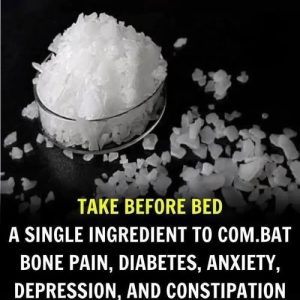Recent global health alerts have galvanized concern around the safety of several widely used medications, particularly those that may pose serious cardiovascular risks. Regulatory agencies such as the U.S. Food and Drug Administration (FDA) have issued advisories and updated warnings about commonly prescribed or over-the-counter drugs, emphasizing that easy accessibility does not guarantee safety. Hidden dangers lurk in medications that affect the circulatory, hormonal, and inflammatory systems. These alerts aim to correct public misperceptions, urging both patients and healthcare providers to recognize and monitor the potential for severe adverse effects.
One drug class under intensified scrutiny is non-aspirin nonsteroidal anti-inflammatory drugs (NSAIDs). These are among the most commonly used pain relievers — examples include ibuprofen, naproxen, diclofenac, and celecoxib. The FDA has strengthened its warning that NSAIDs can substantially increase the risk of heart attack or stroke, especially at higher doses or prolonged use. The agency specifically urges people to use the lowest effective dose for the shortest necessary duration and to remain alert for any signs of cardiovascular trouble, such as sudden weakness, chest pain, or speech difficulties.
Another area of concern involves JAK inhibitors, used in treating chronic inflammatory conditions such as rheumatoid arthritis and ulcerative colitis. The FDA now requires “boxed warnings” — its most serious type — for drugs like tofacitinib (Xeljanz/Xeljanz XR), baricitinib (Olumiant), and upadacitinib (Rinvoq) due to elevated risks of blood clots, heart events, cancer, and death. These drugs suppress parts of the immune system, but long-term data have shown that the danger is especially pronounced at higher doses, prompting recommendations to restrict use and closely evaluate patient risk factors.
Hormonal contraceptives also remain in the spotlight. While widely used, combined hormonal contraceptives have long been known to raise the risk of blood clots (venous thromboembolism, or VTE). The European Medicines Agency’s Pharmacovigilance Risk Assessment Committee has reaffirmed that while the absolute risk is small, it’s important for prescribers and users to recognize individual risk factors, understand early symptoms, and weigh contraceptive choices carefully.
On a more positive note, certain weight loss medications are under regulatory review not for risk but for cardiovascular benefit. For instance, semaglutide, marketed as Wegovy for weight loss, has gained expanded FDA approval: the agency now allows its use to reduce the risk of heart attack, stroke, and cardiovascular death in adults with obesity or overweight plus existing cardiovascular disease. Clinical trial data (from the SELECT trial) showed a significant 20% reduction in major adverse cardiovascular events (MACE) when Wegovy was added to standard care. However, regulatory scrutiny continues — for example, the FDA recently issued a warning letter to Novo Nordisk over underplayed risks of thyroid tumors, pancreatitis, and gallbladder issues associated with its GLP-1 class products.
Central to these alerts is the biology of blood clots. Normally, clotting is a protective mechanism: when blood vessels are damaged, clot formation prevents excessive bleeding. But when clotting happens inappropriately — triggered by certain drugs, genetic predisposition, or hormonal changes — the consequences can be dangerous. Silent clots may form without obvious symptoms but later cause deep vein thrombosis (DVT), pulmonary embolism, stroke, or heart attack if they dislodge or obstruct vital vessels. These potential complications highlight the importance of close clinical monitoring, especially in patients using medications known to influence coagulation or inflammation.
Because these clot-related events can progress rapidly and with serious outcomes, health authorities stress the urgency of early detection. Symptoms such as limb swelling or pain, sudden shortness of breath, chest tightness, or neurological changes (weakness, slurred speech) should prompt immediate medical evaluation. Regulatory agencies encourage patients not to stop essential medications without consulting their provider — but rather to stay informed, report side effects (e.g., via FDA MedWatch), and work with their clinicians to balance benefits and risks. In parallel, healthcare professionals are urged to stay current on updated prescribing guidelines and to rigorously assess each patient’s individual factors before continuing or initiating therapy with drugs known to carry thrombosis risk.
Ultimately, the message from global health authorities is a call for informed vigilance. Medications are critical tools in treating illness, but the assumption that “widely prescribed = safe” can be dangerously misleading. By issuing these alerts and labeling updates, regulators hope to foster a more transparent, cooperative approach to drug safety — one where patients, providers, and regulators all share responsibility. Through awareness, monitoring, and patient-centered decision-making, the goal is to minimize life-threatening cardiovascular complications while preserving access to therapies that improve quality of life.



